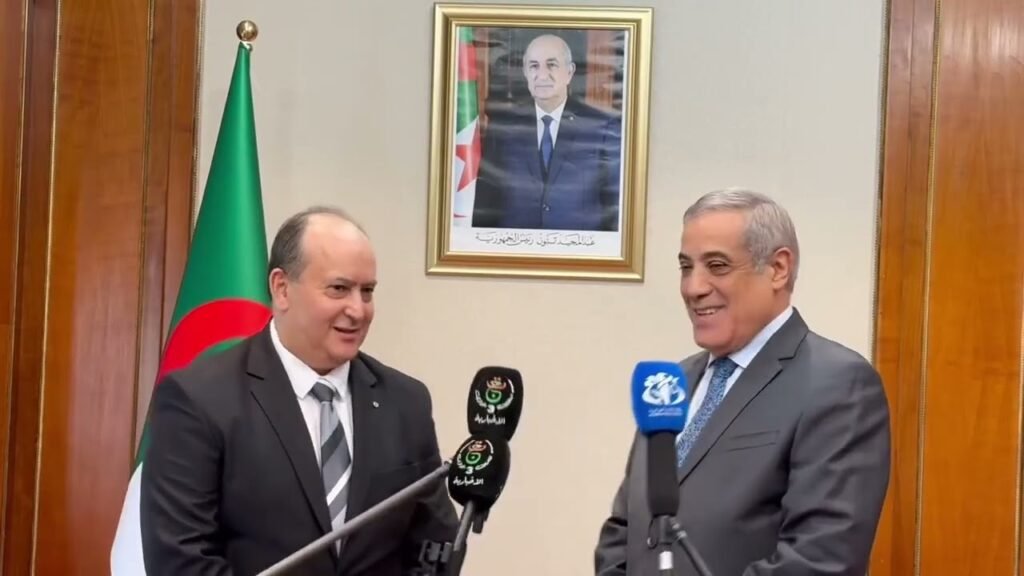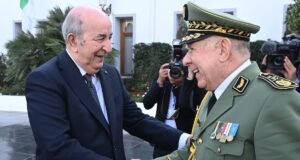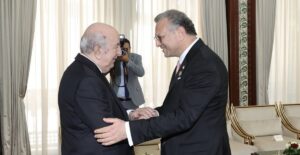Without a goal or agenda, Tebboune's eighth government fails to engage Algerians!

As expected, Algeria's political initiation began with the appointment of a new Prime Minister, the fourth under President Abdelmadjid Tebboune, to form the eighth Algerian government! This news was meant to make headlines but, of course, failed, for many reasons, the most important of which we will discuss later. This time, Tebboune (or the decision-making circle within the Algerian military regime) chose Industry Minister Sefi Ghrib to achieve one goal: "complete the implementation of the president's agenda." This goal, which has single-handedly shaped the government program of the previous seven successive governments, is sufficient to strip the event of any justification for following it. This is for the simple reason that President Tebboune himself is utterly unaware of his own agenda. Since assuming the presidency, he has been embroiled in an endless election campaign, issuing one statement after another without examining the feasibility of his claims, or even filtering them out of contradictions that quickly become subject to ridicule. But why should we consider the formation of a new government in Algeria to be simply a "non-event"?
To begin with, during the 68 months of President Abdelmadjid Tebboune's rule, he tasked four individuals with forming eight governments. Three of these were headed by Abdelaziz Djerad, who served from December 2019 to June 2021. He was followed by Ayman Abdelrahman, who formed two governments from June 2021 to March 2023. Then came Nadhir Arabawi, who formed two governments from November 2023 to August 2025. Finally, came the government of Sefi Ghrib, which will be replaced between February 2027 and May of the same year. Thus, the average lifespan of each government under Tebboune is approximately nine and a half months, and the term of each prime minister ranges between 18 and 21 months. This has led us to predict the appointment of a successor to Ghrib! This rapid change, rivaled only by the speed of the replacement of security chiefs, renders the government's leadership devoid of logic or controls, and consequently deprives citizens of the desire to follow its changes.
Another reason behind the abstention phenomenon is the lack of a clear government program. Simply implementing "President Tebboune's agenda" is insufficient to manage even an institution, let alone a republic. Consequently, confusion characterizes the government's operations across its various ministries, especially since each minister knows that his or her term will likely not exceed one year. This prevents the development of long- or even medium-term plans. Personal gain is the primary consideration, and as a result, citizens see no noticeable difference in their living conditions. Fear of replacement leads ministers to opt for the safer option of repeating the president's slogans without bothering to correct, justify, or implement them.
The third reason for citizens' lack of interest in what is happening within the government is their awareness that under a closed military regime, such as the one that has ruled them since their "supposed" independence from France, civilian officials are merely a facade devoid of authority. They are therefore policy implementers, not shapers. An example of this is the Minister of Foreign Affairs, who, whoever he may be, is incapable of correcting the disastrous course of action, which is based on a single premise: hostility toward Morocco and opposition to its territorial integrity. He ends up repeating a constant refrain, namely, "the right of the Sahrawi people to self-determination," despite their awareness that this slogan, "invented" half a century ago, is no longer valid in any way, and that its harm to Algeria itself is immeasurably greater than its negative impact on Morocco, if such an impact ever existed.
The fourth reason relates to the personalities chosen for the post of Prime Minister. The figures who have held this position (Djerad, Abderrahmane, Larbaoui, and Gharib) share one striking characteristic: they are colorless, tasteless, and odorless! Not because they lack any political affinity (this is understandable given the nature of the regime), but even by the standards of technocrats, none of them is known to have achieved breakthroughs in their respective fields. Perhaps the presence of President Tebboune himself at the head of the republic is enough to clarify this peculiarity of the Algerian regime.
It was striking that Algerian state television broadcast the news, and covered the handover ceremony between Arabawi and Gharib, without publishing a single shot of President Abdelmadjid Tebboune receiving the outgoing Prime Minister to receive his resignation or submit his dismissal! Nor did it broadcast the new Prime Minister to submit his letter of assignment or appointment. This contributed to fueling the controversy surrounding President Tebboune's "disappearance" throughout this summer (for at least a month). Apart from delving into this controversy, and excluding the "conspiracy theory" from the justifications for this protocol "scandal," we will suffice to say that it is a precedent that only occurs in the land of generals!
In conclusion, regardless of the names proposed by the new Prime Minister, who is not sure exactly why he was designated as acting Prime Minister, they will not be able to add the necessary excitement to transform this “non-event” into an event that attracts the attention and attention of Algerians. They will only further strengthen the conviction of the Algerian street that there is no point in expecting any “self-change” from this “expired” regime, and that their demands during the popular movement for the necessity of “overthrowing this regime” are correct!





